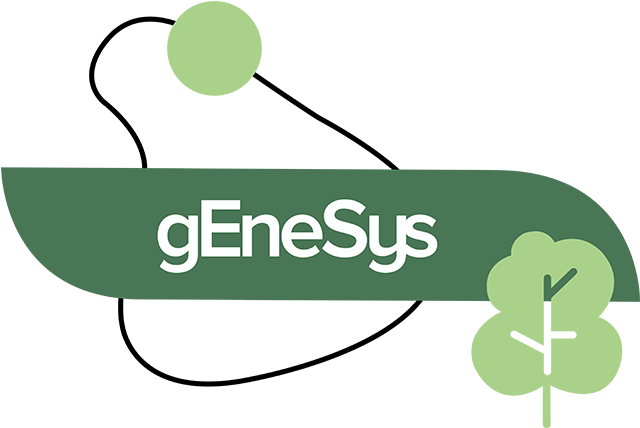Policy
gEneSys views energy transition as a socio-technological innovation ecosystem composed of several interacting, interdependent and often competing subsystems: technological, social, environmental, political, etc. The expert resources listed on this page help explain the complex gendered power dynamics within and between the different subsystems.
How can universities respond to energy crises and societal challenges of green transition?

Jarek Kurnitski (Tallinn University of Technology) argues that universities should respond to crises and societal challenges by establishing curriculums dealing with energy and building technical systems that would be essential to implement Fit for 55 and Renovation Wave targets.
Read more on the CESAER website, here.
#3StepsForward campaign
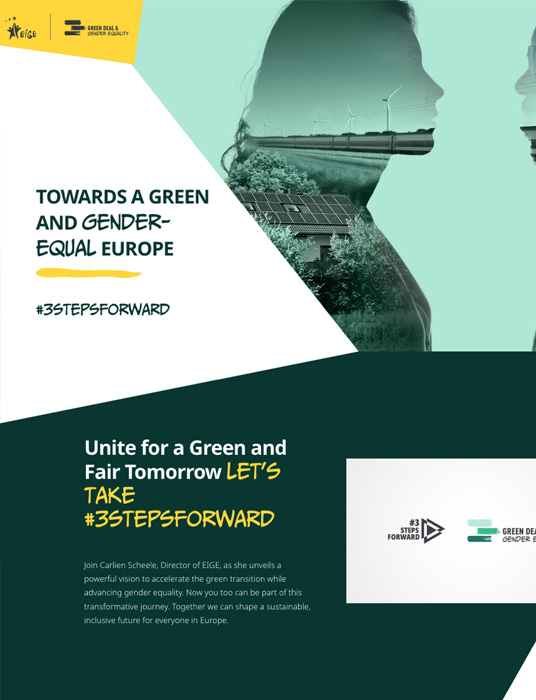
As part of a green transition, energy policy needs to consider and address the struggles of different groups, taking a gender and intersectional perspective, to ensure a just and socially fair transition.
Watch four EU Commissioners speak about the 2024 #3StepsForward campaign, which aims to pave the way towards a green and gender-equal Europe:
RESISTIRE Factsheet: The Missing Perspectives of Women in the National Recovery and Resilience Plans
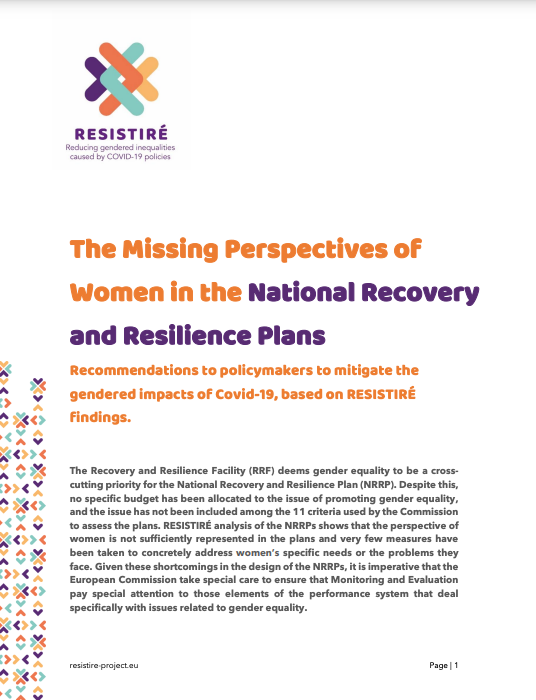
RESISTIRÉ analysis of the NRRPs shows that the perspective of women is not sufficiently represented in the plans and very few measures have been taken to concretely address women’s specific needs or the problems they face. Download the factsheet here.
ILO Just Transition Policy Brief
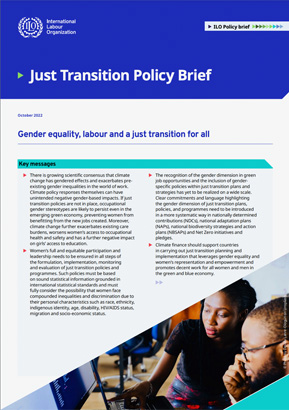
This policy brief is intended to present the linkages between just transition and gender equality and labour, providing stakeholders with information and recommendations for implementation. The broad implementation of just transition across all policy areas and cross-cutting thematic topics requires careful consideration of the guidance provided in the ILO Just Transition Guidelines, taking into account the needs, priorities and circumstances of each country.
Gender in Social Innovation in Energy
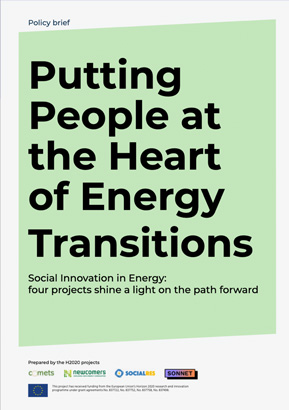
Social innovation in energy (SIE) fosters people-centred changes in the ways of doing, thinking, and organising energy. Across Europe, there is a wide variety of different types of such social innovations, ranging from energy cooperatives, local electricity exchange and energy crowdfunding to energy gamification, campaigns and experimentation. Energy Justice issues, especially engaging marginalised groups (women, low-income households, etc) in decision making, are key aspects in addressing SIE. Strategies should be expanded to engage women more systematically in decision making. This includes removing structural barriers that make it harder for women to get engaged. Further, women need to be recognised as equal players to foster technical improvements, especially as they are just as capable and knowledgeable on technical and economic issues.
Gender Analysis for Energy Infrastructures
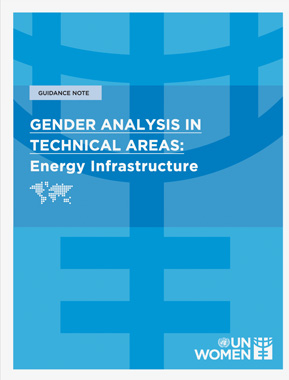
The focus in this guide is the thematic area of energy infrastructure, which is a sector dominated by men and where gender analysis can provide vital data to practitioners on the key entry points for integrating gender equality and social inclusion into energy infrastructure projects. Therefore, this guide provides simple and practical tips, steps and checklists to conduct a gender analysis and offers examples of good practices
Gender and Energy: The effects of the energy transition on women
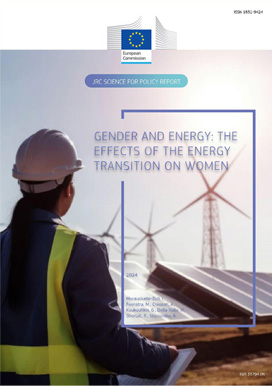
This report from JRC, sheds light on the often-overlooked impact of gender disparities in access to clean, affordable energy, highlighting the need for immediate action to bridge the gap and foster social resilience. The report emphasises the importance of inclusive policies in guaranteeing women’s active engagement and representation in the energy industry, not just as customers but also as decision-makers and innovators.
Gender balance in the R&I field to improve the role of women in the energy transition
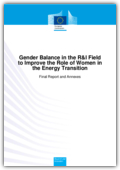
This report assesses gender balance in the energy sector and identifies strategies for inclusivity. Women make up only 25% of the workforce in EU energy companies, marginally higher in senior roles. Women’s involvement in research and innovation stands at 22%, with significant variations across EU states. The report projects the necessity of adding 200,000 women to the EU27 energy sector by 2050 to attain minimal gender balance. Emphasizing the need to promote STEM careers for women, the report includes concrete recommendation for effective measures.
Gender Equality in the Sustainable Energy Transition
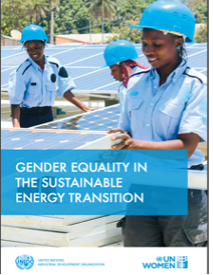
2023 UN and UNIDO Gender Equality in the Sustainable Energy Transition Guide contributes to a gender-responsive just transition to a sustainable energy future by identifying entry points for policies and measures that help ensure women can equally lead, participate and benefit from the growing opportunities in the gender-energy nexus.
Supporting women’s empowerment through green policies and finance
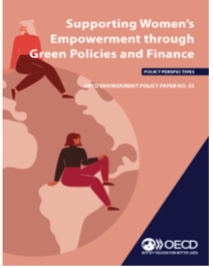
The 2022 OECD Supporting women’s empowerment through green policies and finance report focuses on how gender equality and environmental goals can be mutually reinforcing. It examines linkages and synergies between these two policy agendas and explores the role of green policies, finance, and infrastructure in supporting women’s empowerment and gender equality.
EU 8th Cohesion Report towards 2050
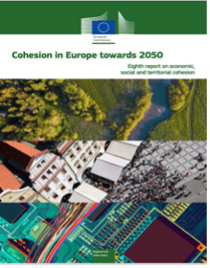
The 2022 EU 8th Cohesion Report towards 2050 report presents the main changes in territorial disparities over the past decade and how policies have affected these disparities. It highlights the potential of the green and digital transitions as new drivers of EU growth. Despite the strong political commitment to achieving gender equality in the EU, large differences between women and men remain in various aspects of life, such as access to the labour market, pay and working conditions, and leadership in decision-making.
CESC Blueprint Guide for Creating Gender-sensitive Energy Policies
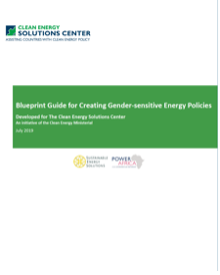
The 2019 CESC Blueprint Guide for Creating Gender-sensitive Energy Policies presents the critical components for developing a policy on gender mainstreaming for energy access, including different considerations around design, development, implementation procedures, critical success factors, challenges, and integrated strategies. It was commissioned by Power Africa through the Clean Energy.
Energy Transition and the Future of Energy Research, Innovation and Education
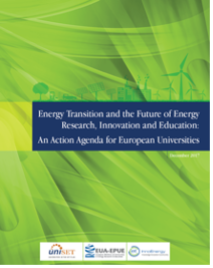
2017 EUA Energy Transition and the Future of Energy Research, Innovation and Education: An Action Agenda for European Universities. Energy transition requires overcoming political, economic, behavioural, cultural, and territorial barriers. Social sciences and humanities are as important as engineering and natural sciences, contributing theoretical and conceptual frameworks, methodologies, and approaches. The report proposes a framework of 24 broad topics for master’s programmes in the energy field and analyses their content and value across several axes.
Transformations for a Fair and Feminist World
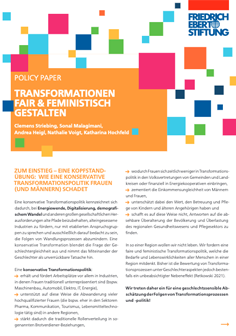
Transformation policies challenge traditional paths of doing things but they can be influenced by social prejudices and structural blind spots. Conservative approaches are often exclusively focused on maintaining established aspirations and omit concerns over how to mitigate the consequences of the change processes. The consideration of gender aspects in the definition and evaluation of transformation policy is therefore of great relevance since gender inequalities are deeply embedded in socio-economic structures and societal beliefs and can persist despite advancements in other social or economic spheres.
